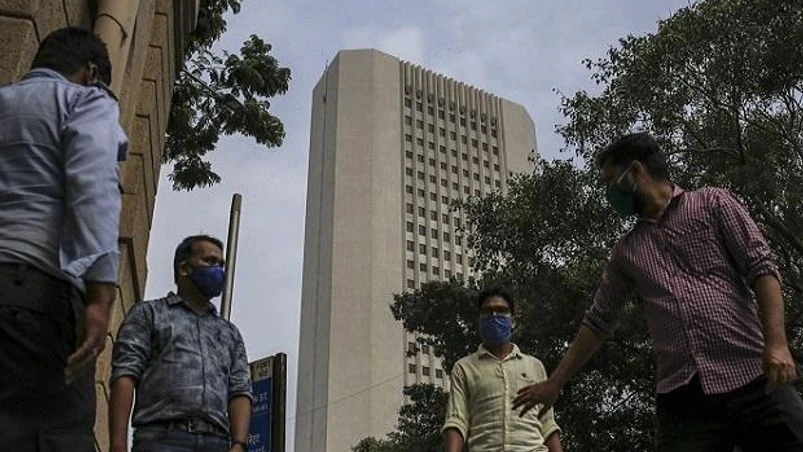 What is Capital Account Convertibility? Is India ready for it yet?
What is Capital Account Convertibility? Is India ready for it yet?
India is on cusp of complete Capital Account Convertibility. While this may lead to rise in FPI inflows, there are a few red flags the govt and RBI need to address. Let's look at those in this report
Nikita VashishtPuneet Wadhwa New Delhi
)
Photo: Bloomberg
RBI deputy governor T Rabi Shankar recently stirred the policy corridors with a debate around Capital Account Convertibility. Speaking at an industry event, he said there was an effort to liberalise FPI debt flows further with the introduction of the Fully Accessible Route, which places no limit on non-resident investment in specified benchmark securities.
But what does Capital Account Convertibility mean?
In simple terms, a capital account keeps a record of all the transactions related to assets between India and other countries.
This includes all kinds of investment assets like shares, debt, and property, or even corporate assets.
Currently, India has a partially convertible capital account policy. This is because an individual or high net-worth investor wanting to invest outside India can invest within an overall limit of $250,000 per financial year under the Liberalised Remittance Scheme for any permitted current or capital account transaction or a combination of both. This means, they can make investments to the tune of up to $500,000 in a calendar year.
The scheme, however, is not available to corporates, partnership firms, HUF, Trusts, etc.
Therefore, if India removes this limit on capital account transaction, we would have a fully convertible account, ideally raising outflow limits for HNIs.
Now, before we proceed towards the likely impact of the move, let’s understand why the RBI would want to remove capital account restrictions.
A fully convertible capital account provides three key benefits. These are stock market returns, reduction in transaction cost due to free rupee convertibility, and improvement in savings and investments which effectively accelerates growth.
Against this backdrop, Aditi Nayar, chief economist at ICRA, says this following while assessing where India stands on the conversion front and what the impact of the move could be
- Govt, RBI working to get India included in the Global Bond Indices
- India liberalising norms related to G-sec investments
- India may see $20-bn inflows per year
- Rupee could depreciate
That said, Gaurang Shah, senior vice-president at Geojit Financial Services, cautions against too much money chasing too few asset classes:
- Should be done in a phased manner
- India must have checks and balances in place
- Keeping a check on bad money (inflow) tough under full CAC
- Given the macro-recovery, we may see access FPI inflows
- Avoid too much money chasing too few asset classes
Watch Video
More From This Section
Topics :FPI inflowsRBIForex
Don't miss the most important news and views of the day. Get them on our Telegram channel
First Published: Oct 26 2021 | 10:30 AM IST
